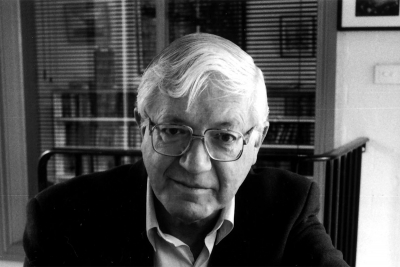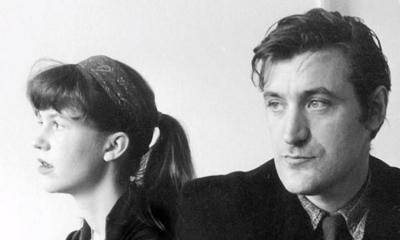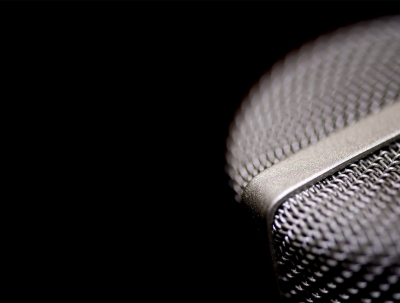Essays
‘Dear God. Save us from those who would believe in you.’ Not long after the attack on the World Trade Centre on September 11 last year, those words were sprayed on a wall in New York. Knowing what provoked them, I sense fear of religion in them. Their wit does not dilute the fear, nor does it render its expression less unsettling. To the contrary, it makes the fear more poignant and its justification more evident.
Enough people have been murdered and tortured over the centuries in the name of religion for anyone to have good reason to fear it. Is it, therefore, yet another example of the hyperbole that overwhelmed common sense and sober judgment after September 11 to sense something new in the fear expressed in that graffiti? In part, I think it is. But the thought that makes the fear seem relatively (rather than absolutely) novel is this: perhaps the horrors of religion are not corruptions of religion, but inseparable from it. To put it less strongly, but strongly enough: though there is much in religion that condemns evils committed in its name, none of it has the authority to show that fanatics who murder and torture and dispossess people of their lands necessarily practise false religion or that they believe in false gods. At best (this thought continues), religion is a mixed bag of treasures and horrors.
... (read more)Some years ago I wrote a poem called ‘A Table of Coincidences’, which contained the lines: ‘the day Christopher Columbus discovered America / Was the day Piero della Francesca died.’ This is a verifiable fact, unless changes in the Western calendar have altered things. Clearly, I was being sententious and reactionary: the ancient good of the world and its new doubtfulness seemed to start on the one day. A hostile reviewer pointed out that every date in the world is the anniversary of some other date, and poured scorn on my notion by suggesting that a momentous event like the Armistice in 1918 might share a date with the invention of Coca-Cola. But we still honour anniversaries, and I am only too conscious of the 365 days that have passed since 11 September 2001.
... (read more)Primo Levi, in two interviews given almost twenty years ago*, set a standard of critical sympathy that is not only exemplary, but peculiarly apt to the fraught debate about the post-September 11 world and the USA’s place and reputation within it.
... (read more)At seven o’clock on the morning of 2 February 1999, I was due at the Memorial Hospital in North Adelaide to relieve my older sister at my mother’s bedside, where she had been all night. The alarm was set for six. At five-thirty, I was woken by the phone; my mother had died, as we had known for a couple of days that she would, from complications following a cerebral haemorrhage.
... (read more)Rhetoric has a bad name. And for good reason. Not only does it suggest insincerity and verbal manipulation, it also has a strong odour of scholasticism about it. It is with some trepidation, therefore, that I turn to ancient rhetoric to urge upon you two terms I find useful in thinking about contemporary Australian poetry. I will make it as palatable as I can and hope it doesn’t choke going down. Whether it is nourishing or not, I leave you to decide.
... (read more)I should make it clear at the start of these discursive memories that I knew Ted Hughes only slightly and Sylvia Plath hardly at all. But I lived in fairly close proximity to their ascent to fame in the 1950s and 1960s and knew much more closely some of the personalities intimately involved in the crisis in the lives of these two remarkable poets ...
... (read more)‘AT NIGHT,’ wrote Charmian Clift one summer in the late 1950s on the Greek island of Hydra where she lived with her husband and children, where the harbour village had been invaded by summer tourists, where teams of local Greek matrons invaded the kitchen in relays to monitor the foreign woman’s housework and mothering techniques ...
... (read more)My great-grandfather Robert had a beard, a pointed one, presumably grey. He stands in a sepia-coloured photograph, gazing steadily at the camera, leaning on a walking stick and wearing a grainy-looking overcoat. But these are only dimly recollected details: I have not looked at the relevant album for years. Much more vivid is the voice I never heard. It was transmitted by my mother, who is now also dead. Throughout my childhood my imagination was peopled by various characters, as she recalled their exact words, entertaining my sister and me as she herself had been entertained: by using remembered voices she recreated her past and created one for us.
... (read more)I found Don Anderson’s essay ‘Leisure’ (ABR, August 1997) interesting, but was intrigued by his photo that covers almost one third of a page. There is a lengthy biographical note which tells us that Don is ‘a member of the English Department at the University of Sydney. His monthly column, ‘Between the Lines’, appears in the Sydney Morning Herald.’ The note also informs us that he contributes a quarterly essay to 24 Hours and has been appointed to the Board of the Sydney Writer’s Festival. I also find out from the note about his most recent book.
... (read more)Richard Hall, in ‘Debasing Debate: The Language of the Bland’, had neither the grace nor the courtesy to contact me when preparing his essay on ‘the language, methods and findings’ of The Mackay Report. Had he done so, I might have been able to caution him against publishing such false and misleading material. I could certainly have asked him to correct several errors of fact but, more importantly, I could have alerted him to the many misconceptions, misrepresentations, and untruths in his article which would inevitably destroy any value it might otherwise have.
... (read more)




